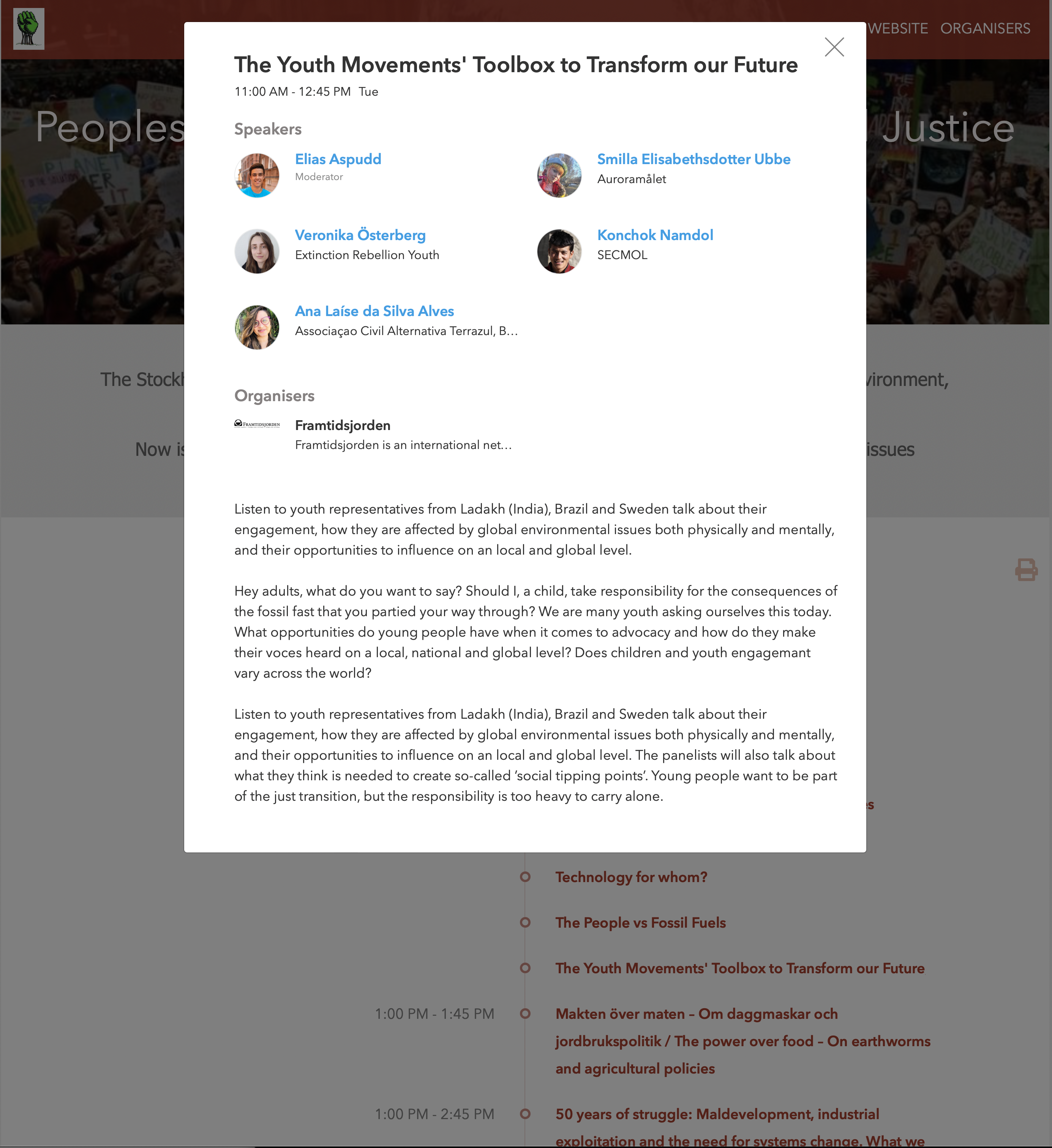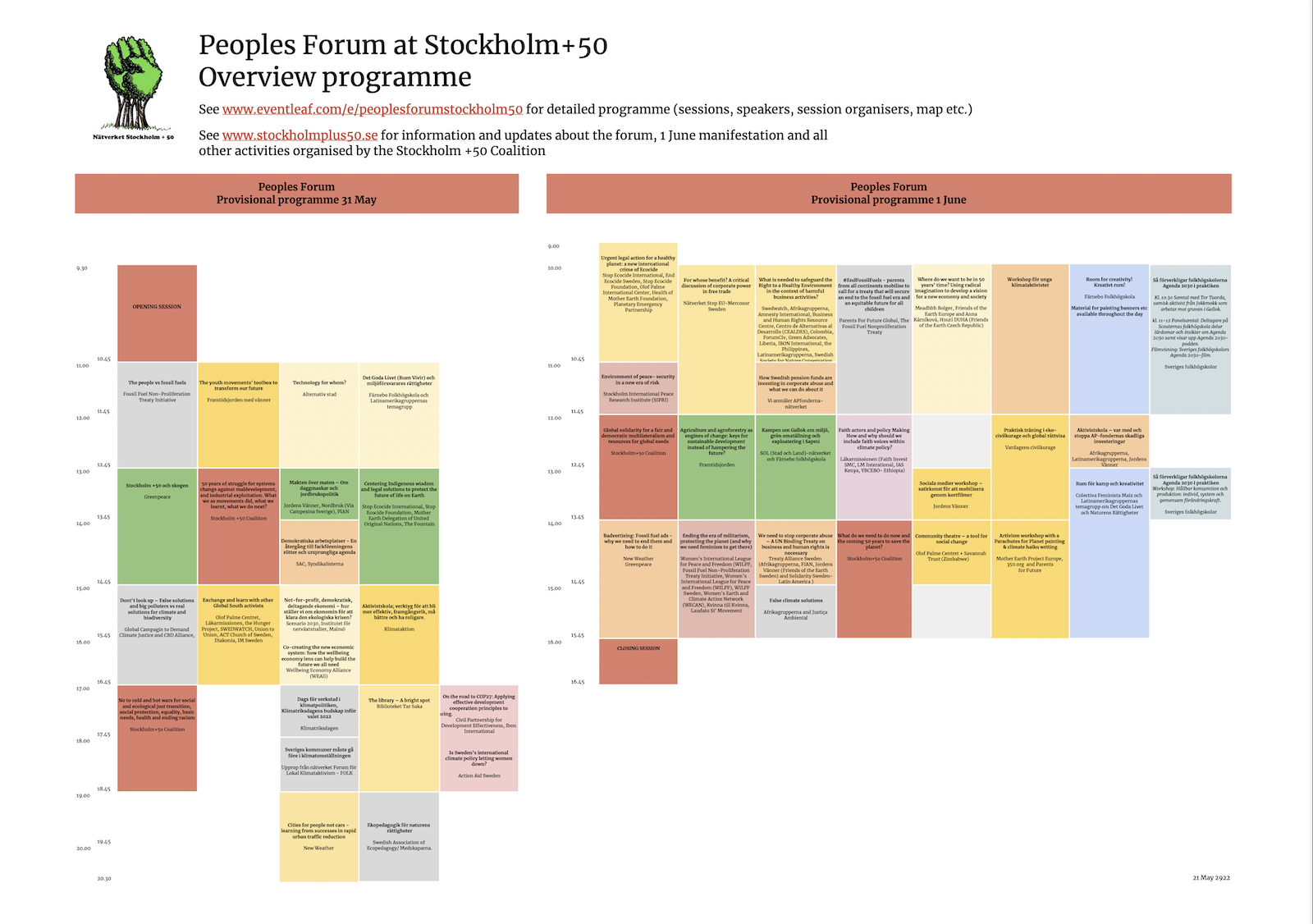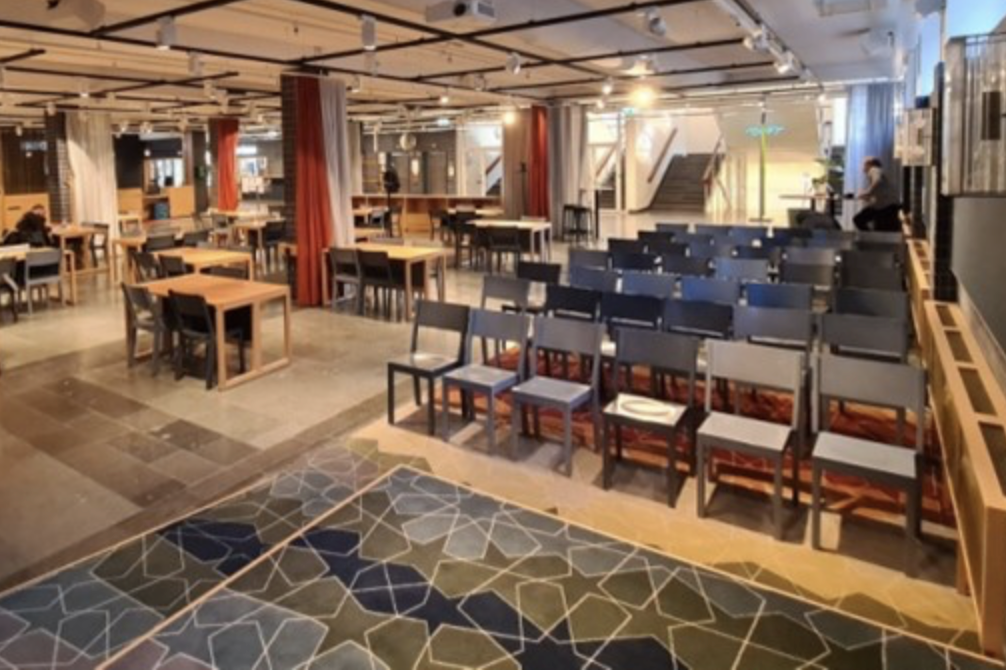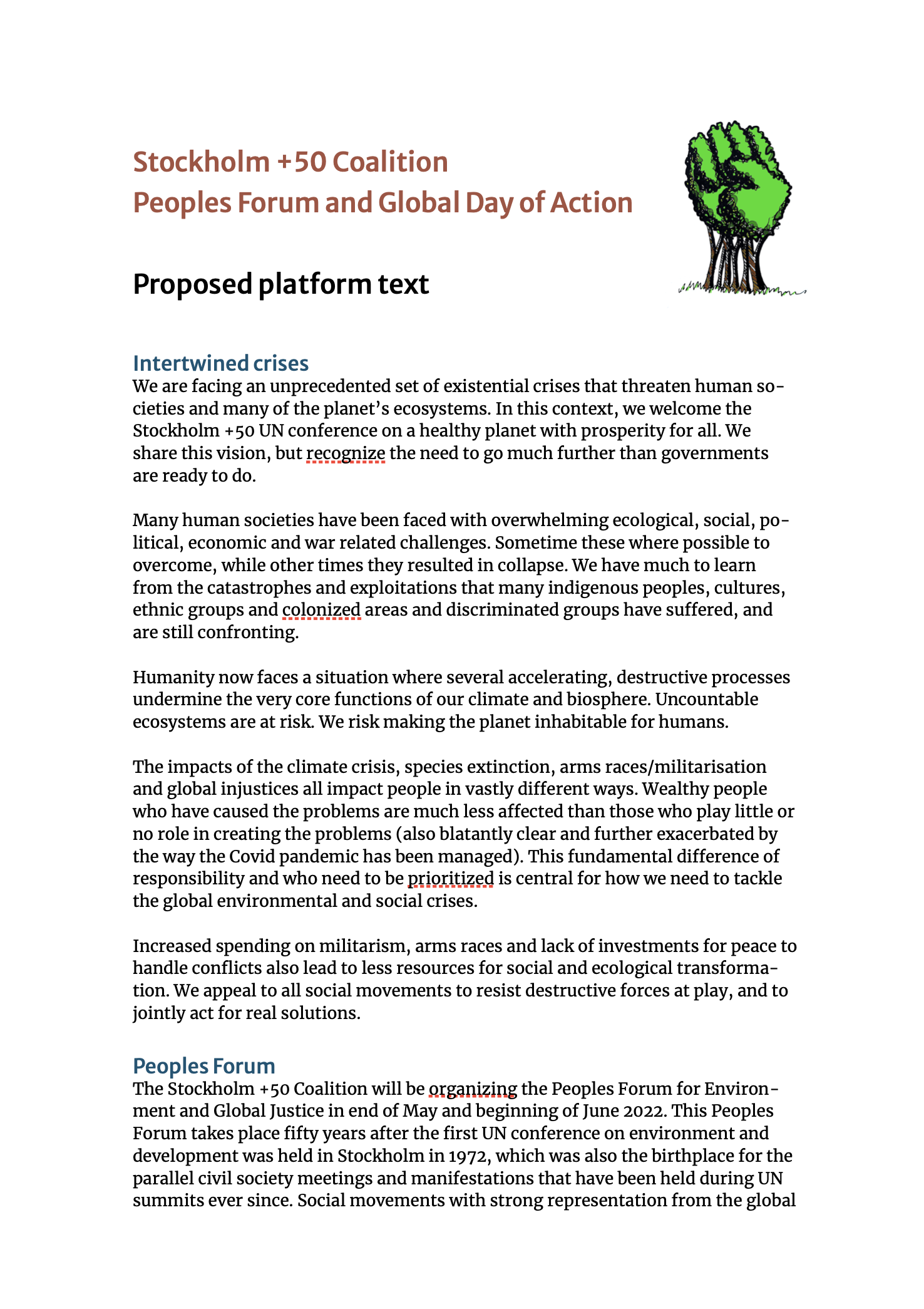The Peoples Forum for Environment and Global Justice 31 May – 1 June will provide a space for social movements and civil society organisations to interact across intertwined issues and struggles.
You can find the programme here: Peoples Forum for Environment and Global Justice
See also the Pre-June Sessions that are being organised in the lead-up to the Peoples Forum.







